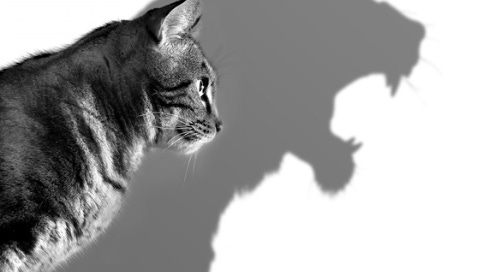Why brave parents don’t need all the answers
Teaching adults to Be Braver doesn't just shape better leaders - it shapes the kind of parents children need: not perfect, but courageous.
“Andrew Tate offers clarity in a confusing world. He’s not scared. In a world of uncertainty, he offers a model of assuredness. He’s like Batman. Brave. Bold. Tooled Up. Indestructible”
This was the uncomfortable insight I took away from the 15 year old Josh Sargent talking to hosts Joeli Brearley and Elliott Rae on the “To Be A Boy” Podcast. A terrifying insight in to the appeal of the Manosphere in a world that seems ever more uncertain.
It’s not just young people seeking certainty. It’s adults, too.
I teach executives how to have difficult conversations, manage uncertainty, and regulate their emotions. Basic human skills that have now become "executive development." They too don’t understand the science behind the wiring that triggers our fear and threat response.
When we haven’t been taught how to sit with fear or nuance, ambiguity, we grab onto the nearest things that makes us feel in control – no matter how toxic, damaging and harmful it may be.
Why do so many of us leave toxic bosses, partners and companies, only to find the fear we thought we escaped reappearing in a different mask – once again in the grip of another abusive relationship.
This is why bravery work matters so deeply - not only in leadership but in parenting and life.
Because when adults learn to Be Braver, they change how they relate to fear, uncertainty, risk and threats. The heart of courage is a virtuous one. It’s proud. Values led. Not afraid to sit with fear.
When we teach our children that uncertainty is the only certainty in life, that they can quietly do difficult things, they know that they can resist, rebel, refuse and rebuild against the darker forces that cast shadows over the brightness of life. They thrive.
The same for adults. Not by pretending to be fearless, but by staying present in discomfort.
By choosing values over safety. By saying, “I don’t know,” and staying in the room anyway.
Brave parenting is beautiful, messy uncertain and a collaboration with your kids. It isn’t punitive, authoritarian. It doesn’t demand perfection.
It asks for presence.
It means listening when your child’s fear is messy.
It means apologising after you get it wrong.
It means modelling that courage is a practice, not a personality. Not a superhero.
Because our children aren’t looking for perfect parents. They’re watching to see how to live with fear, and still choose love.
Josh Sargent talked about children looking to superheroes. Wanting to live a life like Batman.
They’re not looking for someone to be the hero for them.
They’re looking for the tools to be their own hero.
And when we teach our children to Be Braver, that’s exactly what we give them:
The truth that the hero in their life will always be the one in the mirror.
And that they already have everything they need to be as super as they want to be.




